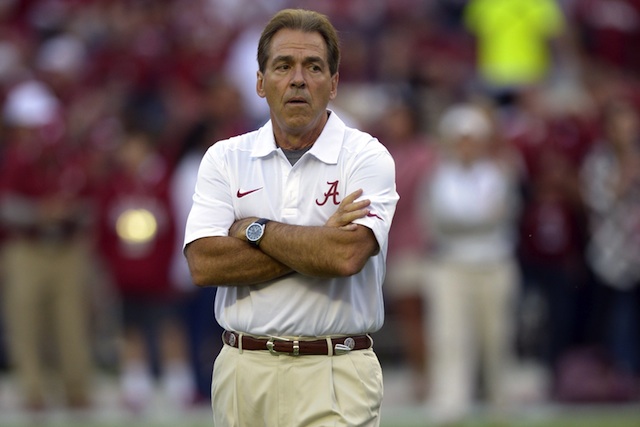
DESTIN, Florida -- Most SEC presidents support Georgia’s proposal to ban players from transferring within the conference if they have been disciplined for “serious misconduct,” but there are issues that could cause the vote to be postponed, South Carolina president Harris Pastides said Thursday.
Georgia’s proposal stems in large part from Alabama giving defensive lineman Jonathan Taylor another chance after the Bulldogs dismissed him last summer following a felony domestic violence arrest. Taylor was soon dismissed by Alabama after another domestic violence arrest, this time in Tuscaloosa, Ala., although that accuser later recanted her accusation.
Under Georgia’s SEC proposal, Taylor would not have been able to transfer to Alabama in the first place given his previous dismissal for “serious misconduct” at another school. The proposal defines “serious misconduct” as sexual assault, domestic violence, stalking, dating violence or other forms of physical violence. SEC presidents and chancellors took a straw poll Thursday prior to a formal vote Friday.
“My prediction is it will be tabled,” Pastides said. “I think most of us are in favor of the Georgia proposal, but there are too many intricacies and there wasn’t enough time at this meeting. So I think it may turn out that it comes up at the next meeting.”
During Thursday’s meeting, several SEC presidents and chancellors who are lawyers questioned what would happen if a player arrested is not convicted on such charges, Pastides said.
“That was the complexity -- what about innocent until proven guilty?” Pastides said. “That’s what we have to work out with the ADs. I think that universities need to be held to a different standard than just what the law says. I do agree that those (violence) issues are much more serious than, for example, you get arrested for drinking underage or speeding or smoking pot. So I do think we need to take a different stand on these."
Mississippi State president Mark Keenum said he senses support from presidents and chancellors for Georgia’s proposal. “When a student decides, ‘I got suspended or expelled because of behavior that’s not acceptable,’ then I don’t think the league will allow that student to then say, ‘I’m going to transfer to another school,’” Keenum said. “We’re not going to allow that.”
Missouri chancellor R. Bowen Loftin declined to comment specifically about Georgia’s proposal. In March, police closed a rape investigation that involved Missouri football players and a Missouri swimmer who committed suicide several months after she told a friend and mental health professionals about the alleged incident.
Following a different incident last year, Missouri dismissed star wide receiver Dorial Green-Beckham after he was alleged to have pushed a woman down at least four stairs. Green-Beckham transferred to Oklahoma but was denied a waiver by the NCAA to play immediately. He has since left for the NFL.
“I’ve had several cases at Missouri -- very prominent cases this past year -- that I spent a lot of time worrying about how do we handle these things?” Loftin said. “You want to be sure you don’t simply allow a person to move from school to school to avoid the consequences of their actions. On the other hand, there may be learning experiences that an athlete could benefit from and sometimes a change of venue could be helpful. So where do you draw that line? I’m not sure we’ll resolve that by any means through legislation.
"That’s where this is coming from is making sure we don’t ignore the student-athlete’s future by not just letting them move around and not learn from the experiences they had at a certain school. Think about it that way. That's the way I think about it. I don’t want anybody to leave my institution without being improved."




















